Hynetek laid out e-Marker, PD Source, PD DRP chips in advance, and launched a complete set of PD3.1 high-power solutions
1 17, 2022
The latest USB PD3.1 fast charging standard was released by USB-IF in June 2021. As a result, the maximum voltage supported by the USB Type-C power supply is increased from 20V to 48V, and the charging power is increased to 240W. Based on this background, on January 12, 2022, Allion and Hynetek held awebinar with the theme of "Revelation of the latest technical specifications of USB4 240W EPR Cable and USB PD3.1". It is worth noting that Hynetek, who participated in the webinar, is the only chip manufacturer in China that participates in the formulation of the USB PD3.1 specification.
Mr. Yingyang Ou, the application director of Hynetek, shared at the meeting: "Under the USB PD3.1 standard, the application of USB PD is powered by traditional mobile phones and laptops, and expanded to portable devices, IoT devices, smart home, communications and security equipment, automotive and medical fields. The upgrade of this standard will promote USB PD to become a truly unified power supply standard, and play an important role in environmental protection of the earth, reduction of electronic waste, and the interconnection of all things.”
Facing the market development trend under the USB PD 3.1 standard, the need for product upgrades is obvious. Hynetek has layouts on the power supply end, power receiving end and cable end of USB PD3.1, and presented a complete set of high-power solutions for USB PD3.1 at the meeting.
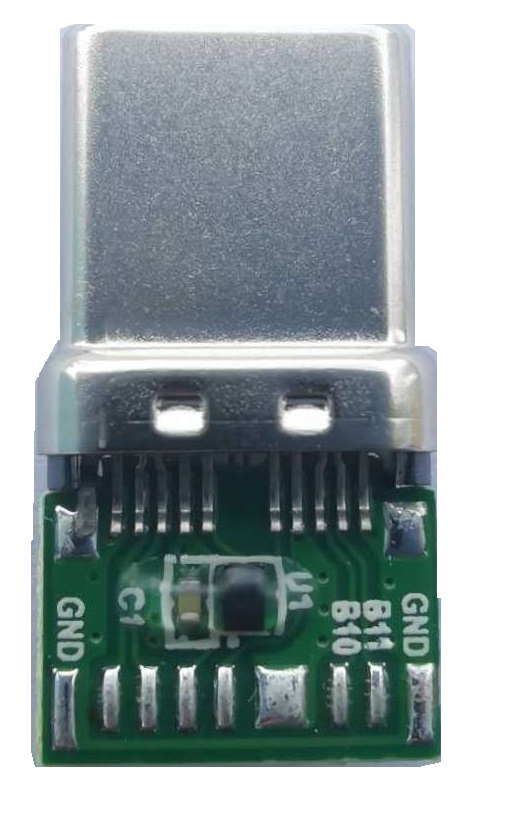
HUSB332B
Hynetek HUSB332B is the first chip in the industry to pass the USB PD3.1 E-Marker Silicon certification test, TID 6773. HUSB332B supports USB PD3.1 EPR 240W power transmission and USB4 Gen3 40Gbps data transmission, suitable for 240W USB-C to USB-C cables. HUSB332B has its own encryption function, which can be applied to the identification of the cable by the device, and its custom key is convenient for manufacturers to customize.

flow diagram
The encryption algorithm of HUSB332B is implemented as follows: After connection, Source detects Ra, but does not provide VCONN power, and the eMarker detection mechanism does not execute; Sink requests 5V PDO and enters PD RDY state; Sink confirms that Source is the target product (relying on the initiative to initiate SOP Discover Identity );The Sink runs VCONN Swap and powers to the eMarker; the Sink executes the eMarker detection command, issues the Discover Identity command, and the eMarker replies; the Sink runs the custom VDM command, which contains 6 VDO data, and the eMarker replies with 6 VDO data. The algorithm should be controlled by the program; run VCONN Swap and close VCONN; run fast charge.
In 2022, Hynetek will launch the PD Source HUSB362. HUSB362 supports USB PD3.1 EPR 28V function, the built-in 32K programming storage unit (MTP) can support multiple programming; built-in VCONN power supply and eMarker detection, also integrates 10bit ADC sampler, suitable for notebook computers, monitors and other products .
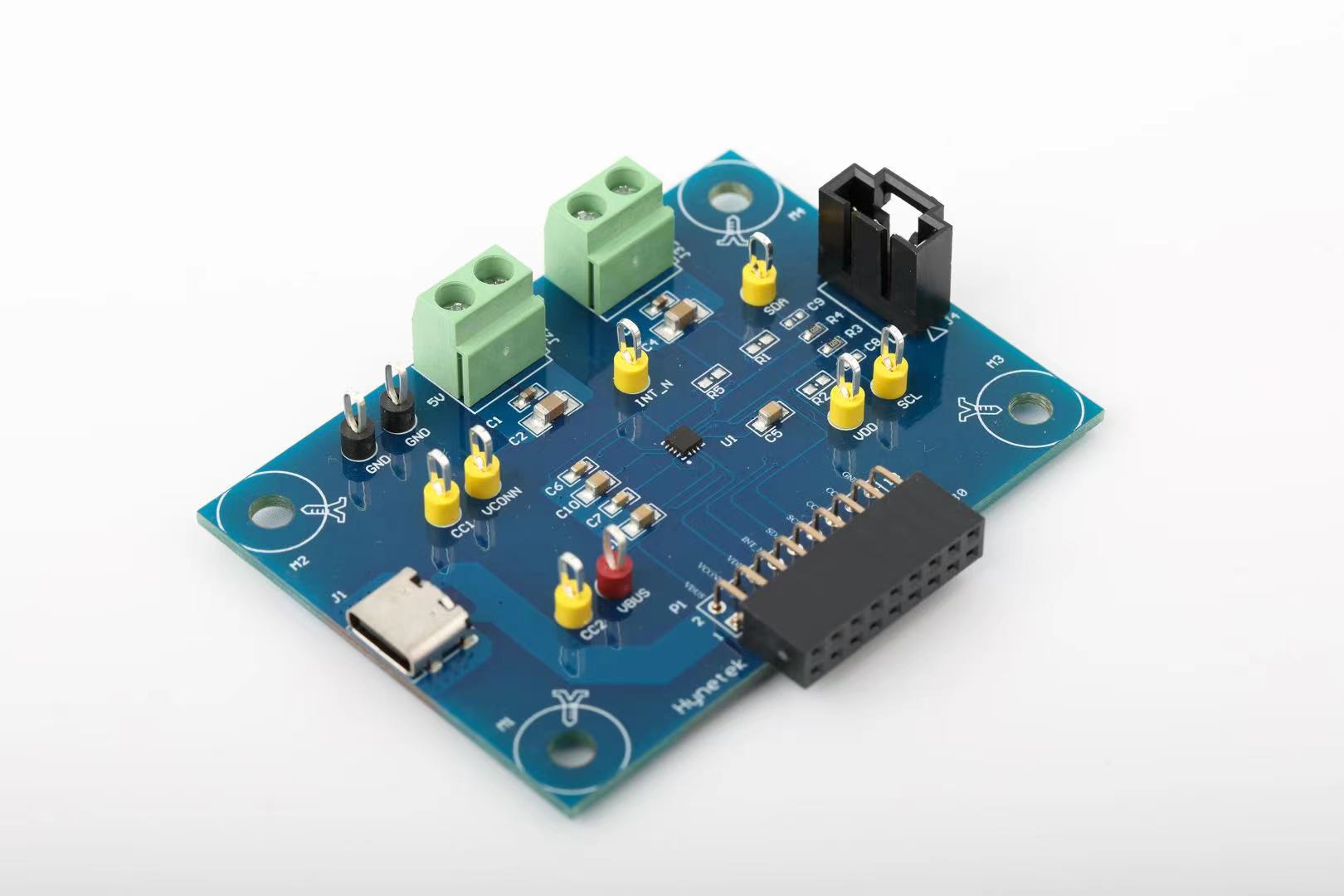
HUSB311C
In addition, there are PD DRP HUSB311C and HUSB239, which are upgraded versions of HUSB311 and HUSB238, and they all meet the USB PD3.1 standard.

HUSB311C block diagram
HUSB311C is a USB Type-C & PD controller chip, which can be configured as three different working modes: USB PD3.1 Source only, USB PD3.1 Sink only and USB PD3.1 DRP respectively. It supports USB PD3.1 extended messages, supports 2 I2C communication addresses, and is suitable for laptops, projectors, mobile phones, etc.
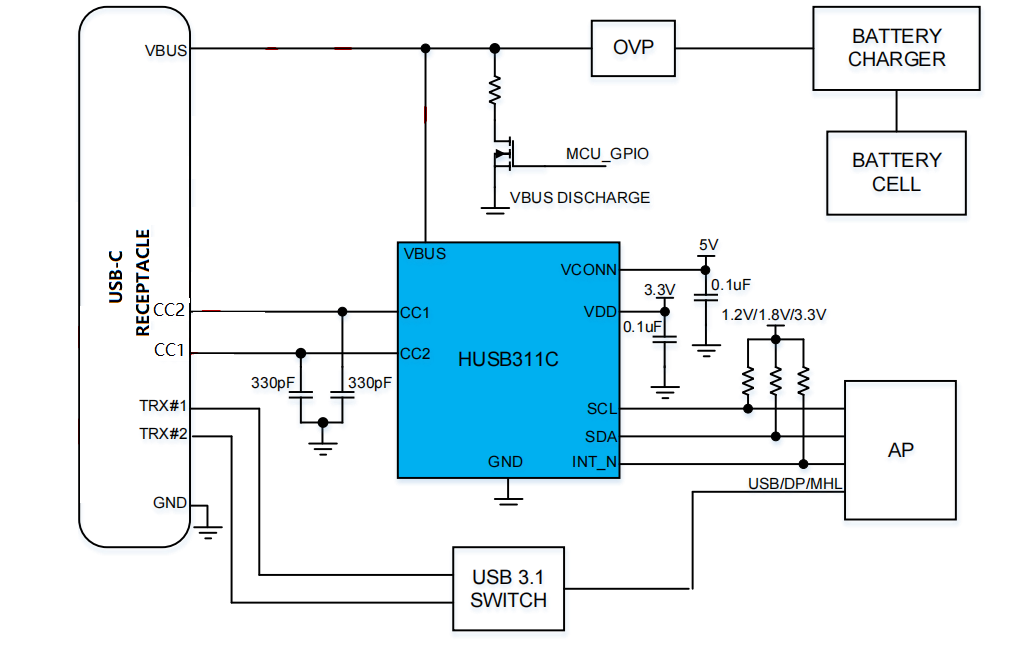
HUSB311C Application diagram
This circuit is suitable for battery charge and discharge and data channel control in DRP dual mode. The application processor (AP) or the embedded controller (EC) controls the HUSB311C, and then controls the battery charger and the USB data switch according to the information of the HUSB311C.
HUSB239 is a PD DRP that can run independently, supports PR_SWAP, DR_SWAP, VCONN Role Swap, supports Discover ID and Discover SVID, and is used in Type-C occasions with data communication. It does not need any software programming, does not need to be burned, and is ready to use.
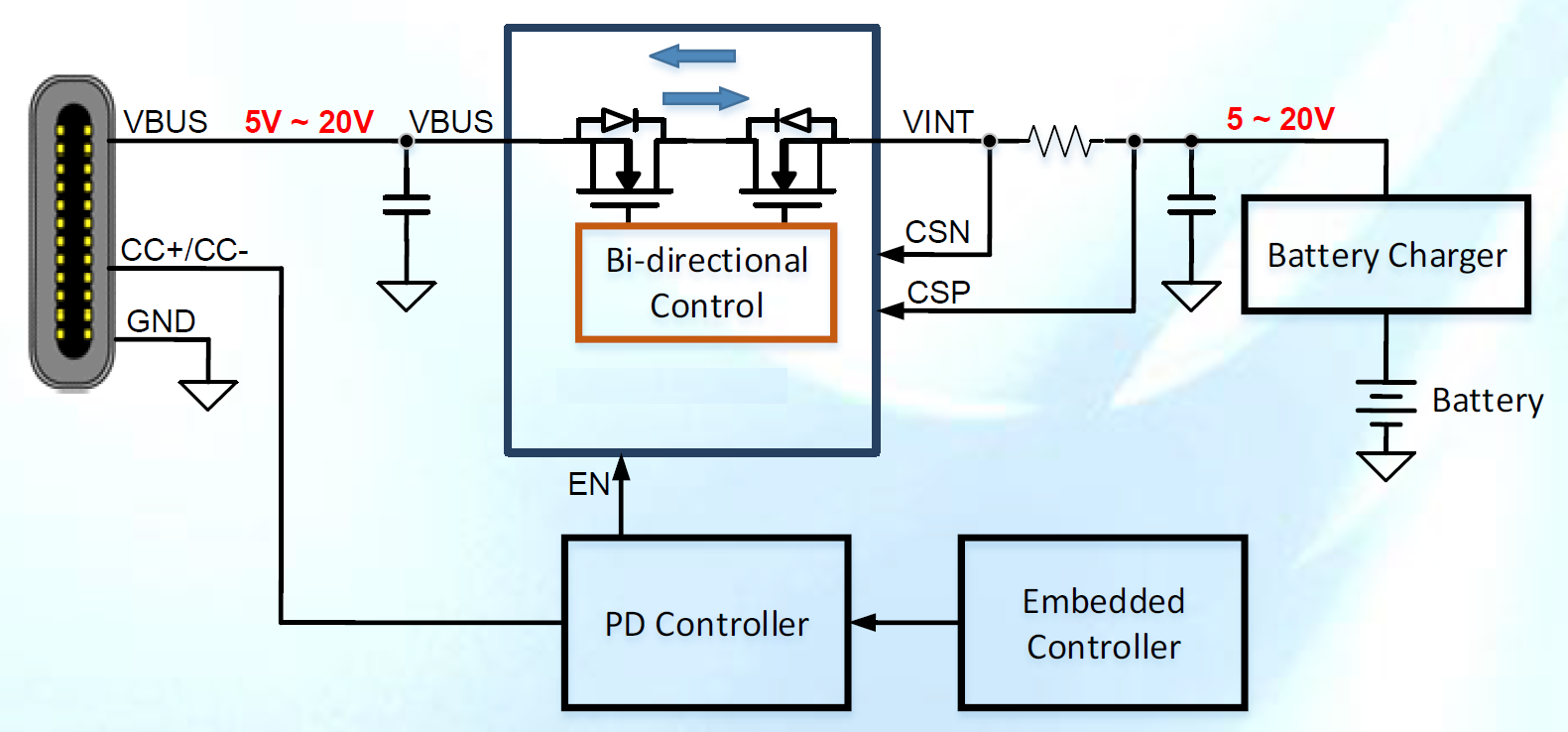
HUSB239 Block Diagram
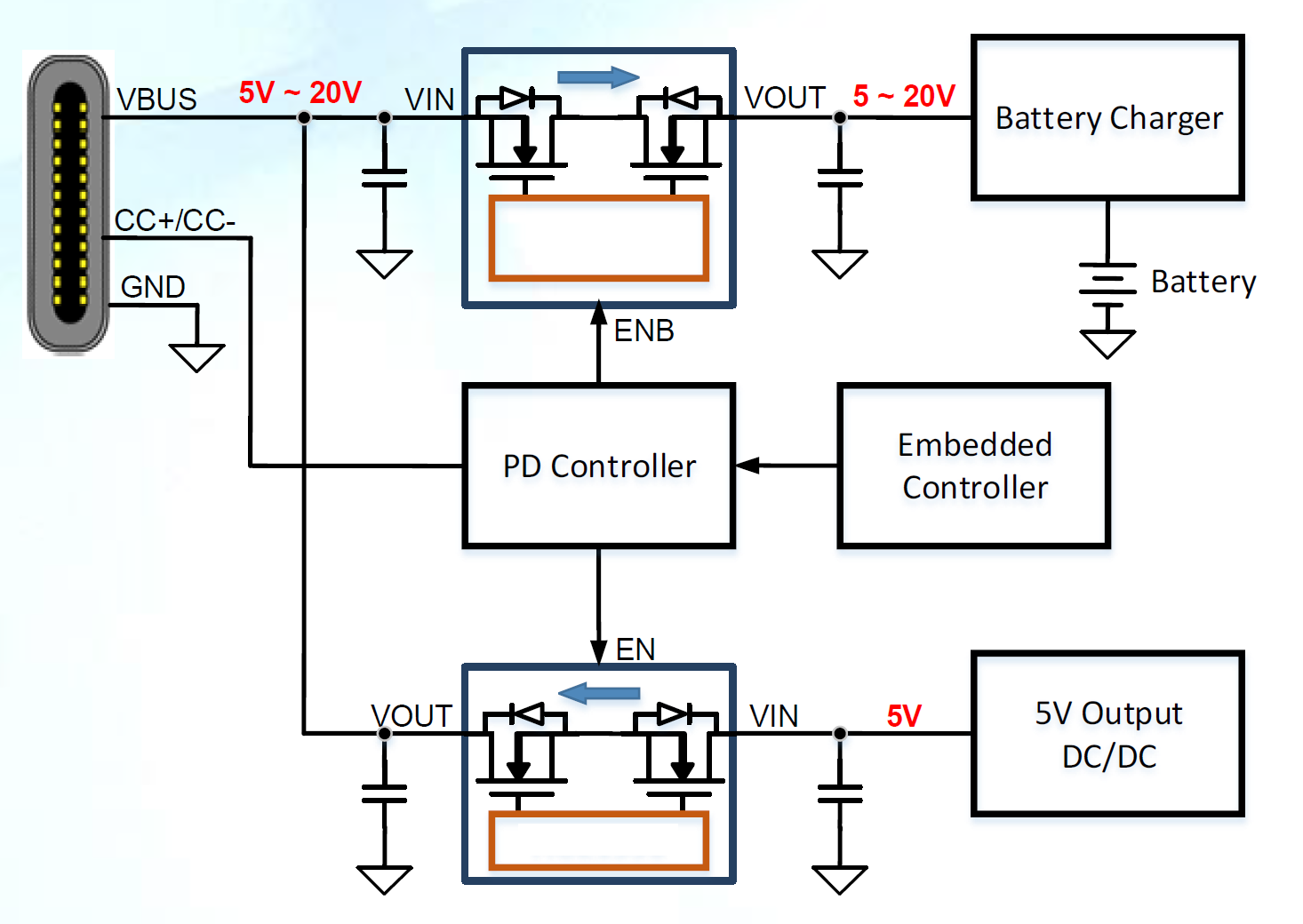
HUSB239 Block Diagram


